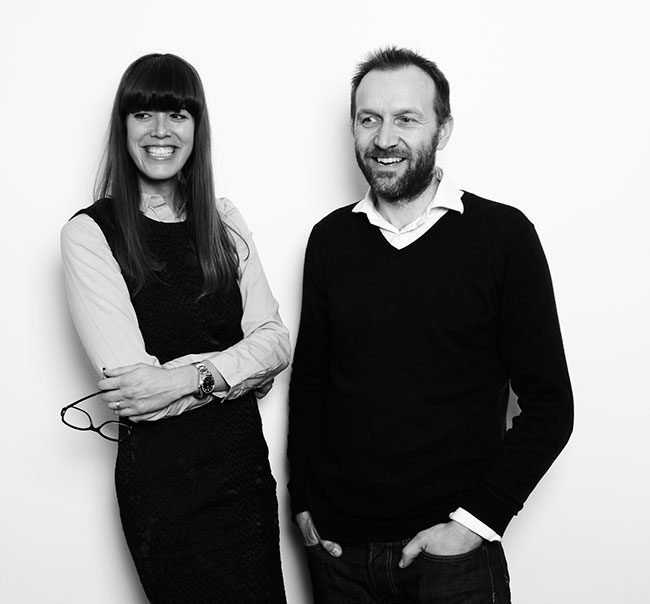dn&co. is a brand, print and digital creative agency based in London's West End. They specialise in branding for the architecture and property industries, with clients including The Crown Estate and London Collections: Men. Co-founder Joy Nazzari answered our questions.
On digging for information... Our clients are rarely equipped with the knowledge of how to write a brief — and why should they? If they are C-level directors or Partners, they may even have bigger fish to fry. But you have to hope that they have the information that leads to the formation of a great brief, and this is what we like to dig into.
Brief writing is therefore inherently collaborative — you know what you need to produce a great result, and therefore the onus is as much on you to eke it out of the client. It is so important to understand the client’s company and personal ambitions — it’s important to see both levels.
It's worth establishing goals early, and trying to understand what particularly motivates the individual client personalities. But often questioning the brief can take a client further than they knew they could go — and that leads to trust and success. A good brief sets out goals and challenges to overcome, but doesn’t set out to answer the questions for you.
On the problems that come with having egos in presentations... Although we love a big reveal with a dramatic aha! moment and a standing ovation, we’ve started to find a lot of value in showing a few cards to key players early. You get an early insight, they feel involved, and importantly you have greased the wheels for acceptance when revealed to a larger group. There is a big risk that a big-swinging-dick in the room can derail a reveal by setting a critical tone — get them involved early. This is a masterful trick to learn from politics — back-room politicking can release the build up of expectation from a big meeting.
On the irrelevance of a client’s prior experience in the process... We have tweeted before that any prior experience in the process a client has had does not help determine if they will be great or horrible. We value intelligence, trust, balanced self-confidence (insecure clients feel the need to compromise, and egos need to see their “mark” on a project). Some clients want a hip agency to party with, some clients want a great idea that generates business — neither is wrong, but knowing what you want out of the process will help you determine if the chemistry is going to work.
Arguing is never a beautiful thing, and in a great client relationship both sides need to be willing to listen and try to understand where the other side is coming from. It’s too easy to run back to the studio and say the client is stupid — it’s rarely true.
On pulling rejected ideas from the bin... Sometimes an idea feels uncomfortable to a client at first viewing if it’s really new and different, and the client may strongly believe their reasons for rejecting. In trusted client relationships, we have on occasion managed to bring back a rejected concept among other new ideas, once even after being consigned to the bin twice. Great clients are willing to listen, confident clients are willing to think again, and lovely clients will use a sense of humour to tell you if it really still is a no. That takes careful cultivation of trust, which doesn’t come from arguing.
On why there’s no “one size fits all” approach to clients... In our portfolio, every client and project is different both in terms of personalities, process and aims. Some projects have one client contact, some of the trickier ones have dozens. One not so fun client once averaged 10 emails a day for months, whereas another probably only sent us 10 emails in two years. There is no “one size fits all” approach to suit them all, so we do almost instinctively match up the right personalities, and assess how much administration each will require. It’s worth discussing early what’s going to work both internally and for the client.
